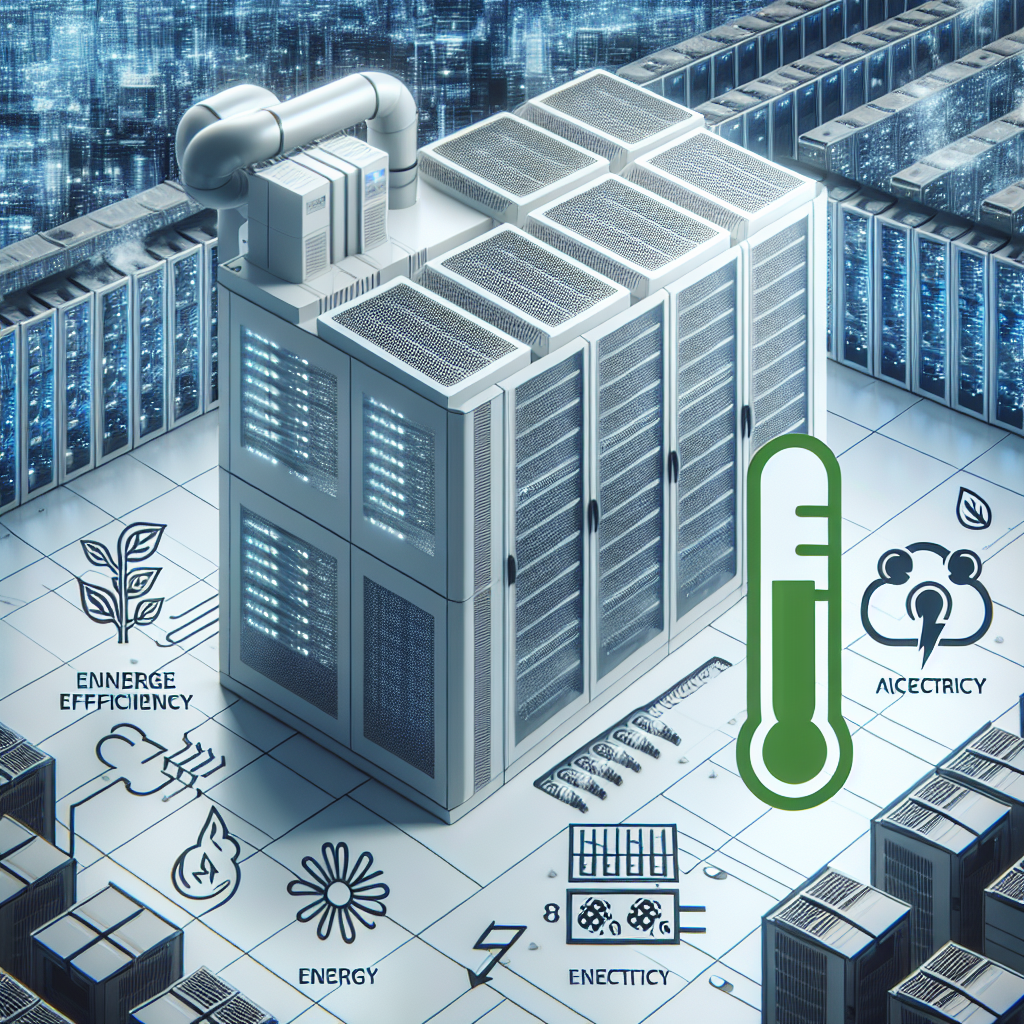Data centers are crucial for businesses to operate smoothly in today’s digital age. These facilities house servers, storage systems, and networking equipment that store, process, and distribute vast amounts of data. With the increasing demand for data storage and processing capabilities, data centers are growing larger and more complex. As a result, managing the temperature and humidity levels within these facilities has become a critical aspect of their operation.
Heating, ventilation, and air conditioning (HVAC) systems play a crucial role in data center cooling and energy efficiency. These systems are responsible for maintaining the optimal temperature and humidity levels within the data center to ensure that the equipment operates efficiently and reliably. Inadequate cooling can lead to equipment overheating, which can cause system failures and data loss. On the other hand, excessive cooling can result in unnecessary energy consumption, leading to higher operating costs.
To address these challenges, data center operators must design and deploy HVAC systems that are specifically tailored to the unique requirements of their facilities. This includes factors such as the size of the data center, the density of the equipment, and the geographic location of the facility. By implementing a customized HVAC solution, data center operators can achieve optimal cooling performance while minimizing energy consumption.
One of the key strategies for improving data center cooling efficiency is the use of containment systems. These systems isolate hot and cold air streams, preventing them from mixing and reducing energy waste. By implementing hot aisle containment and cold aisle containment strategies, data center operators can improve airflow management and reduce cooling costs.
Another important consideration for data center cooling is the use of energy-efficient HVAC equipment. High-efficiency cooling units, such as variable refrigerant flow (VRF) systems and chilled water systems, can significantly reduce energy consumption and operating costs. By investing in energy-efficient HVAC equipment, data center operators can achieve substantial savings on their electricity bills while maintaining optimal cooling performance.
In addition to implementing advanced cooling technologies, data center operators can also leverage data analytics and monitoring tools to optimize HVAC performance. By collecting and analyzing real-time data on temperature, humidity, and equipment operation, operators can identify potential issues and make proactive adjustments to improve cooling efficiency. This proactive approach can help prevent equipment failures, minimize downtime, and extend the lifespan of the data center infrastructure.
In conclusion, HVAC systems play a critical role in data center cooling and energy efficiency. By implementing customized cooling solutions, containment systems, energy-efficient equipment, and data analytics tools, data center operators can optimize cooling performance, reduce energy consumption, and improve overall operational efficiency. By prioritizing HVAC in data center design and operation, businesses can ensure that their critical IT infrastructure remains reliable, resilient, and cost-effective.

Leave a Reply
You must be logged in to post a comment.